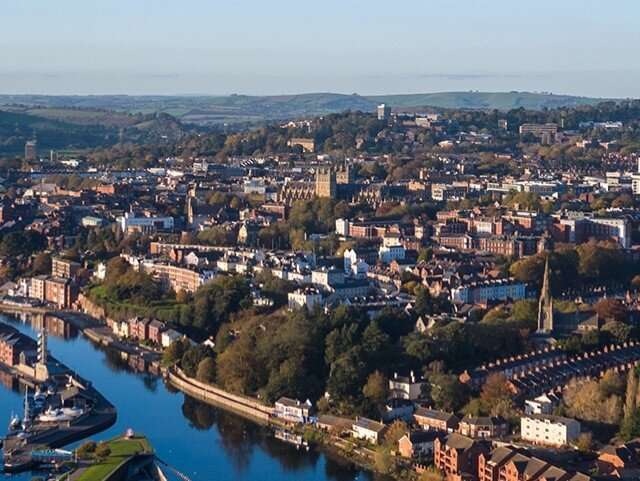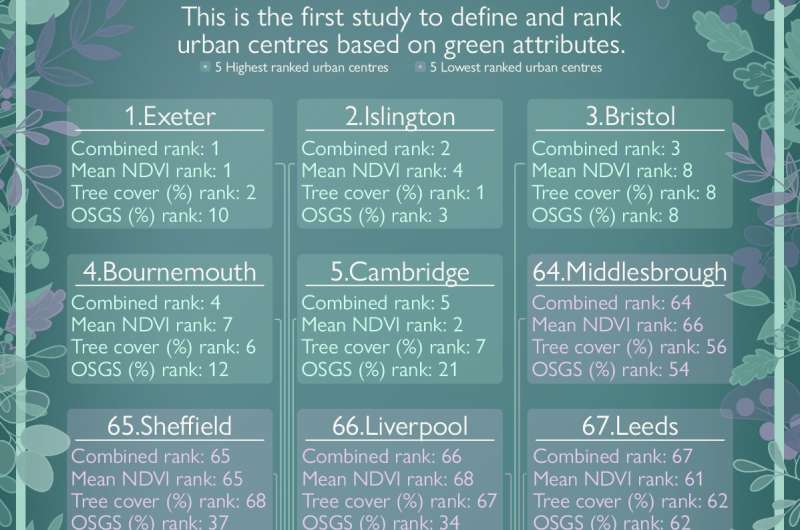Exeter tops Britain's city centers for 'greenness,' while Glasgow comes in last

A new study of 68 city centers in Great Britain—comparing "greenness" of tree cover, vegetation and the presence of parks—has linked lower scores with higher levels of poor health, economic, education, crime and other deprivation outcomes.
The PLOS One study led by Flinders University, University of Sheffield, University of Melbourne and Environmental Protection Authority Victoria researchers, evaluated urban centers with larger populations of more than 100,000 people to create a metric of urban ecosystems and vegetation and human health, social equity and biodiversity.
Five cities in southern England were ranked highest (Exeter, Islington, Bristol, Bournemouth and Cambridge) and five in the previously industrial north had the lowest from Leeds, Liverpool, Sheffield, Middlesbrough to Glasgow at the bottom.
"While previous studies have measured greenness in broader suburban areas, our study focuses on city centers where people of diverse backgrounds spend much time at work, recreation and shopping," says author Dr. Jake Robinson, a European microbial ecologist and adjunct Flinders University researcher.
"While people's lives are enhanced by the greenness of their city, many cities have high tree densities in the suburban areas but not their urban centers.
"Not surprisingly, the urban centers with higher tree and vegetation cover, public green spaces including parks and sports fields, have developed after more focus on urban planning rather than urban sprawl and industrial growth, and now have lower levels of deprivation in general, including in human health metrics."

In addition, the urban centers with larger populations had lower tree coverage and lower normalized difference vegetation index, measured by satellite observations of light absorption and reflection.
These disparities in city center greenness across Britain should be incorporated in further city planning, says co-author Dr. Paul Brindley from the University of Sheffield
"This work could help inform efforts by local authorities and urban planners to monitor greening interventions and boost the greenness of city centers in a more equitable manner," Dr. Brindley says.
It is projected that nearly 70% of the world's population will be living in towns and cities by 2050. Global urbanization is putting increasing pressure on biodiversity and human health, including with harmful air pollution and other gases and particulate matter, and degrading habitats.
"The need to re-imagine and re-develop our urban city centers due to digital shopping technologies and societal changes provides and important opportunity to explicitly consider the enhancement of urban center biodiversity," the research concludes.
More information: Jake Robinson et al, Urban centre green metrics in Great Britain: A geospatial and socioecological study', PLoS ONE (2022). DOI: 10.1371/journal.pone.0276962
Journal information: PLoS ONE
Provided by Flinders University





















